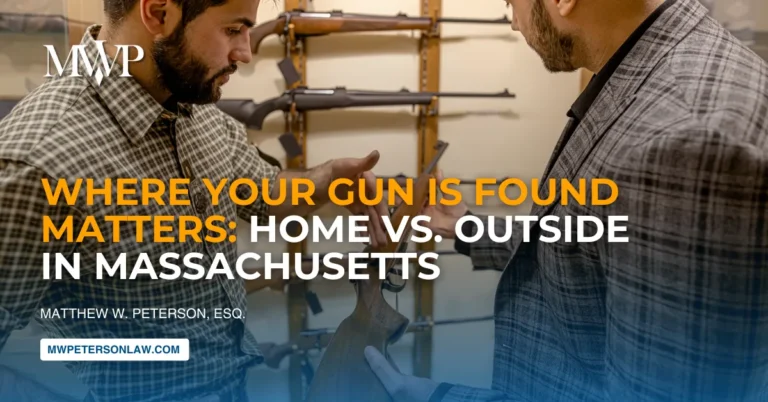The Massachusetts legislature passed a sweeping overhaul of the Commonwealth’s gun laws in 2024 with “An Act Modernizing Firearms Laws Act” (Chapter 135 of the Acts of 2024). While the legislation made numerous changes to Massachusetts firearms regulations, one of the most significant transformations was to the very definition of what constitutes a “firearm” under state law. This fundamental change affects numerous aspects of firearms law, from licensing requirements to criminal prosecutions.
The Pre-2024 Definition: A Focus on Handguns
Prior to the 2024 Act, Massachusetts law maintained distinct categories for different types of weapons:
“Firearms” primarily referred to handguns – weapons with barrels less than 16 inches in length
“Rifles” and “shotguns” were separately defined categories
Statutes addressing both handguns and long guns would specifically use the phrase “firearm, rifle, or shotgun”
This distinction meant that different licensing requirements, possession laws, and criminal penalties could apply depending on the specific type of weapon involved.
The Expanded Definition Under the 2024 Firearms Laws Act
The new law dramatically broadens the definition of “firearm” to now include:
Pistols and revolvers (previously covered)
Rifles
Shotguns
Sawed-off shotguns
Large capacity firearms
Assault-style firearms
Machine guns
This consolidation means that the term “firearm” now encompasses virtually all types of guns regulated under Massachusetts law. Additionally, the definition now explicitly includes “the frame or receiver of any such firearm or the unfinished frame or receiver of any such firearm.”
Elimination of the Operability Requirement
The new definition specifically incorporates gun components that previously would not have qualified as firearms on their own:
A “frame” (for handguns) is defined as “the part of a pistol or revolver that provides housing or a structure for the component designed to hold back the hammer, striker, bolt or similar primary energized component prior to initiation of the firing sequence”
A “receiver” (for long guns) is “the part of a rifle or shotgun that provides housing or a structure for the primary component designed to block or seal the breech prior to initiation of the firing sequence”
This expansion allows prosecution for possession of these crucial components even when they don’t resemble complete firearms, addressing concerns about “ghost guns” assembled from individually purchased parts.
Elimination of Exceptions
The new definition also removes certain previous exceptions, including:
Weapons not shaped like handguns
Weapons not detectable by x-ray machines
These changes bring non-traditional weapons like those made from high-density plastics within the definition of “firearm.”
Impact on Criminal Prosecutions
These definitional changes significantly impact criminal prosecutions under Massachusetts law:
Prosecutors can now charge unlicensed possession of frames, receivers, and other components that previously might not have qualified as “firearms”
The elimination of the operability requirement streamlines prosecutions by removing the need for ballistics testing in many cases
The broader definition closes perceived “loopholes” like those at issue in Commonwealth v. Shehadi (2024), which held that electrical weapons not shaped like guns were not “firearms”
Conclusion
The redefinition of “firearms” under the 2024 Modernizing Firearms Laws Act represents a fundamental shift in Massachusetts gun regulation. By expanding the definition to include all types of guns, components like frames and receivers, and weapons that may not be currently operable but could be converted, the law significantly broadens the scope of what constitutes a regulated firearm in the Commonwealth. This change affects everything from licensing requirements to criminal prosecutions, and will undoubtedly result in legal challenges and judicial interpretations in the coming years.











